When caregiving for your loved one, deviations from their normal behavior can be a cause of anxiety. If something as essential as eating changes suddenly, it can be difficult to understand and try to fix. Before you start to panic, take a breath and know you are on the right track towards seeing improvement.
Sharing a meal with your loved one should be a positive, community-building activity that the whole family looks forward to. While a lack of eating may feel like a shift in the daily routine, by taking the right steps and staying positive this challenge can be solved correctly.
What’s the root cause of my loved one not eating?
When it comes to your loved one not eating, this is usually an indication of an underlying root cause that needs attention. The first thing you should ask yourself is, does my loved one appear to be ill or in pain? A lack of appetite is a common symptom for physical change, so be on the lookout for wincing, slower movement, or just a generalized feeling of being unwell. From there, talk to your doctor about the best form of action to reduce the physical barriers interrupting your loved one’s reduction in eating.
If your loved one does not appear to be in any physical discomfort, a lack of eating is a common response to cognitive decline. Although this feels heavy, there are many steps that can be taken to make mealtime a normal part of the routine once again.
First, ask yourself these questions to guide the next steps:
- Is my loved one having difficulty recognizing food?
- Does there appear to be a lack of hunger cues during breakfast, lunch, and dinner times?
- Are utensils proving to be difficult for my loved one to use?
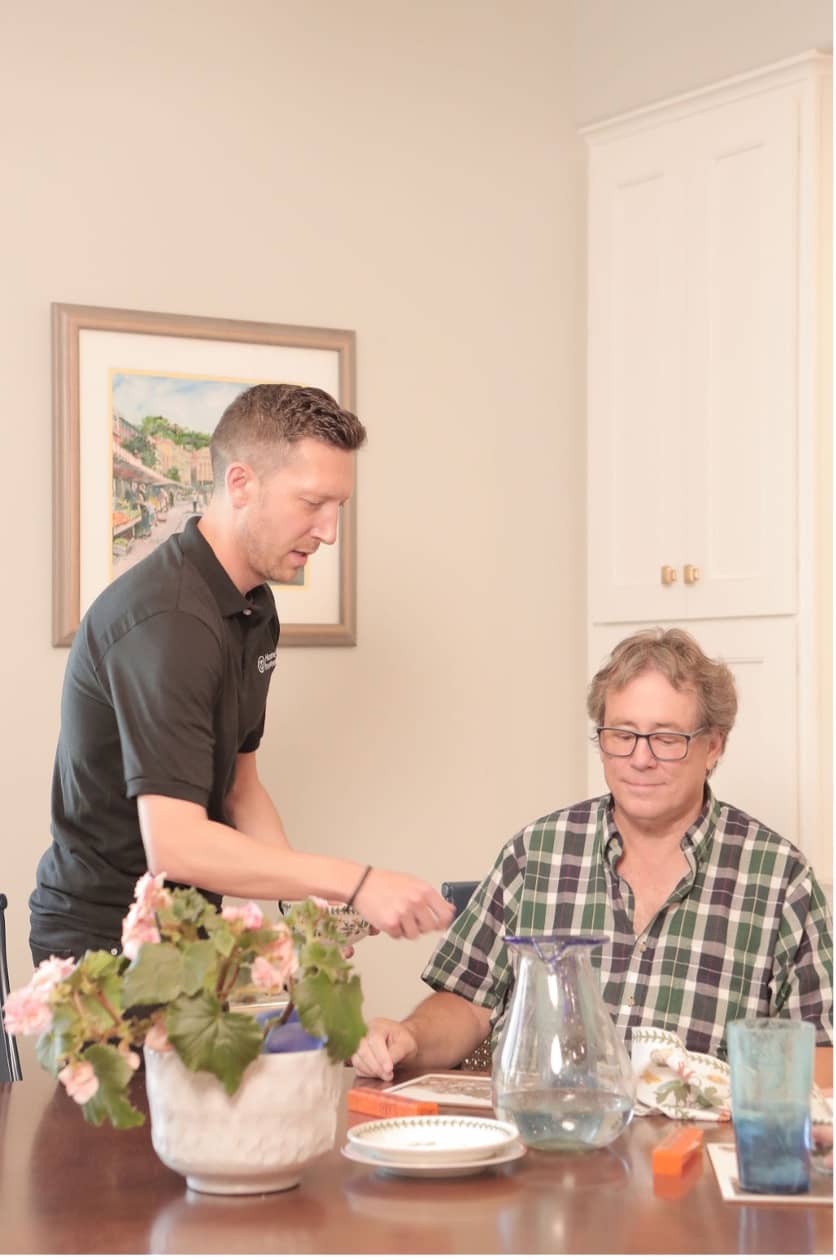
From there, begin working with your Care Pro team and trusted doctors to help make this ambiguous issue feel less daunting. Depending on what signs are the most present, a plan can be created to tailor the correct approach.
For any routine deviations, especially when it comes to necessary functions, we place emphasis on monitoring and tracking patterns. Every time a Care Pro enters your home, they are documenting your loved one’s successes and potential changes through the Honor Care Platform. With this, it’s simple to see when/how the root cause started to develop, ensuring the right techniques are used the first time.
When is a lack of eating cause for concern?
If you’re unsure whether or not to consult your doctor, ask yourself if your loved one displays any of these signs:
- Weight loss
- Shakiness
- Difficulty concentrating
- Trouble using the restroom
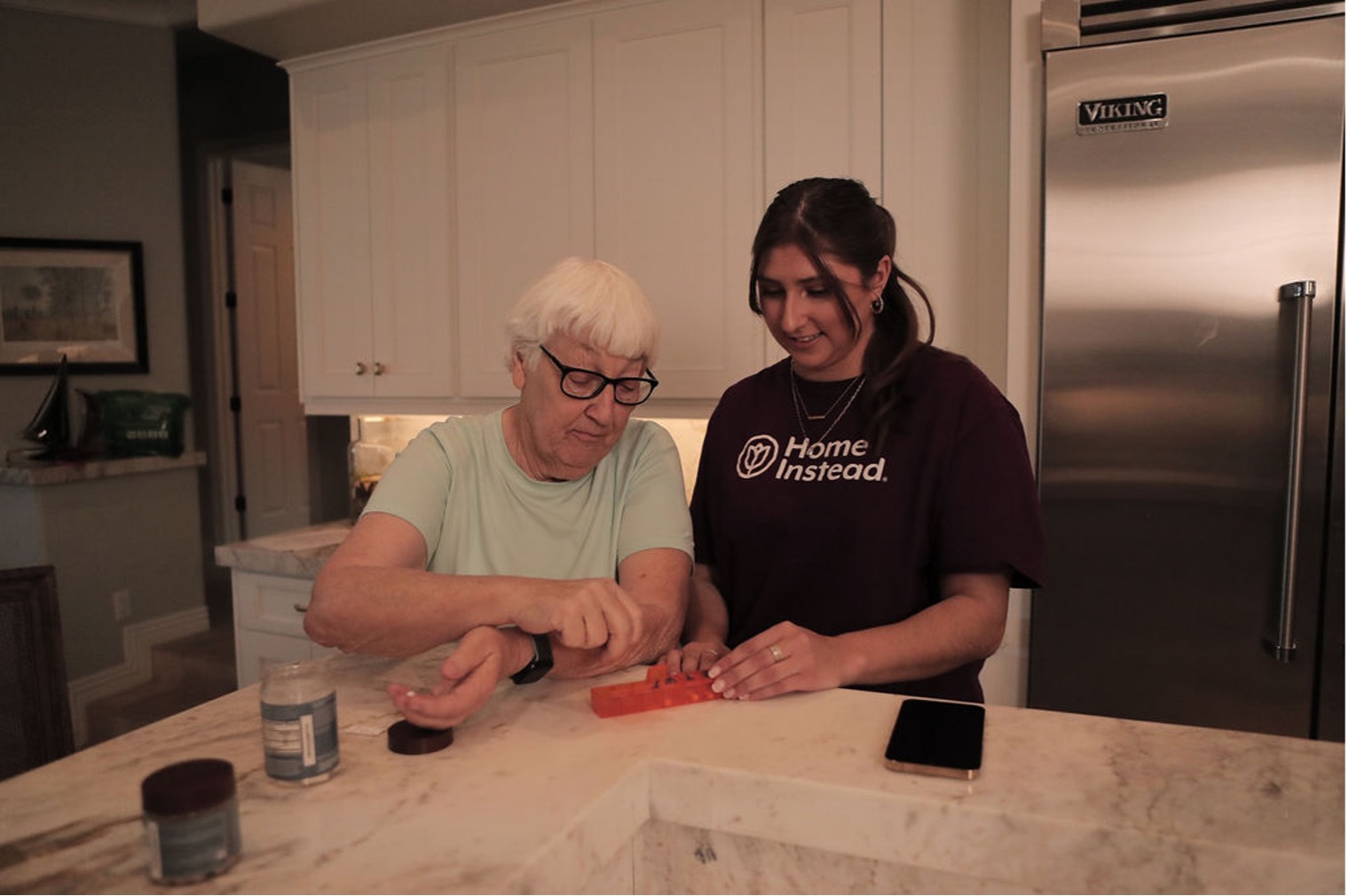
If any of these symptoms start to become more evident, steps need to be taken. We always say you know your loved one better than any healthcare professional. If you feel like their lack of eating is a concern- it’s a concern, even if the problem feels minor.
How do I make my loved one feel comfortable during meals?
The easiest and most successful way to promote comfort during meals is emphasizing a supportive dining environment no matter what. Create a calm and welcoming space for mealtimes, free from distractions and loud noises. Encourage stimulating conversation that brings positivity to the routine of mealtime. Most importantly, bring a sense of familiarity to the entire dining experience to ensure your loved one remains calm.
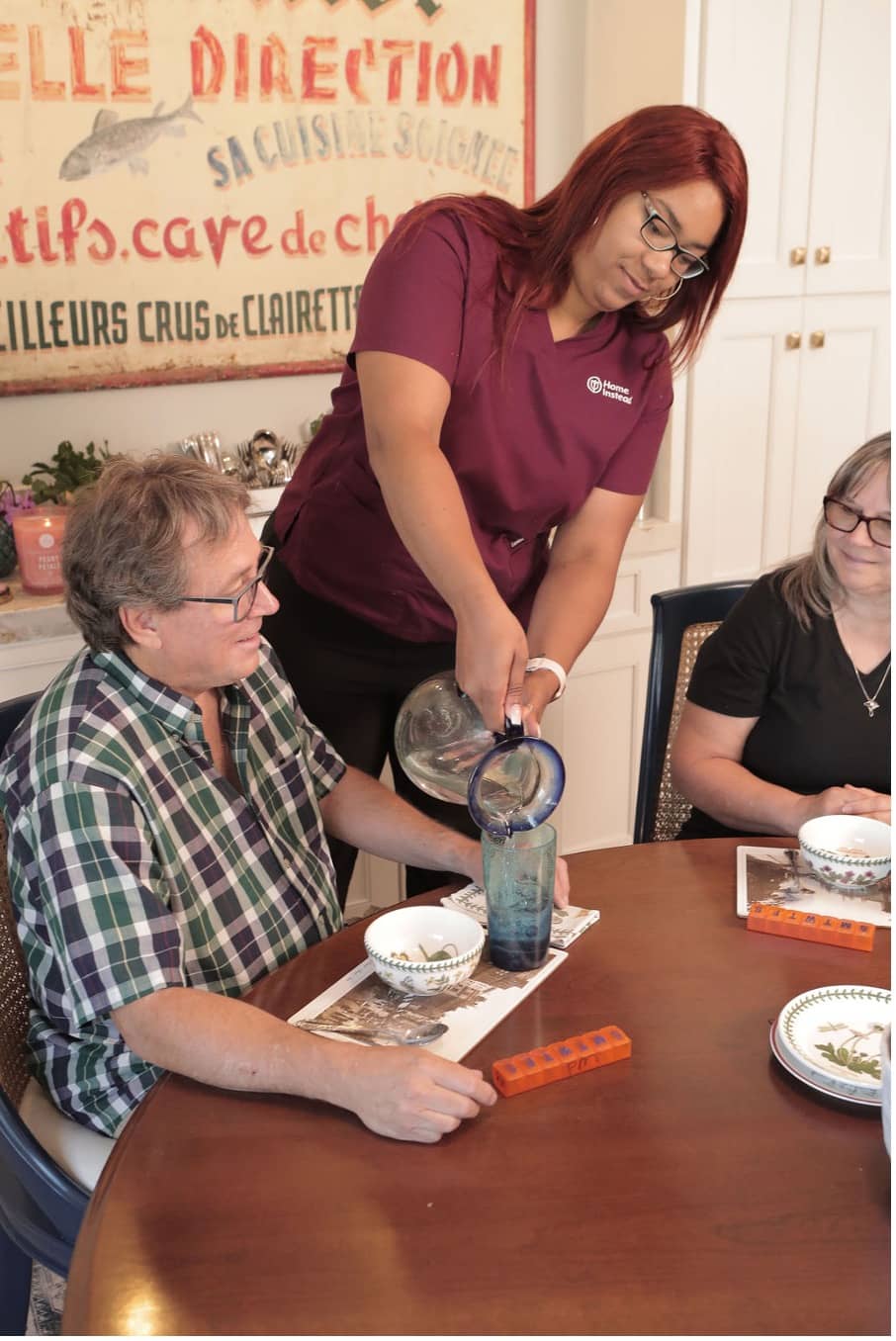
Dining is one of the best ways to connect your loved one with the rest of your family. By placing emphasis on the joy that comes from being around the dining table, it creates a sense of excitement every time your family can sit down and be all together.
I want to encourage my loved one to eat… how do I do this in a positive way?
Encouraging your loved one with Alzheimer’s to eat needs to be done in an uplifting manner that still allows them to feel like it’s a choice. We understand this can be challenging, but this experience is something our Care Pros are experts on. From proper dialogue to nonverbal cues, we are here to support your family in whatever it takes to bring joy back to meal time.
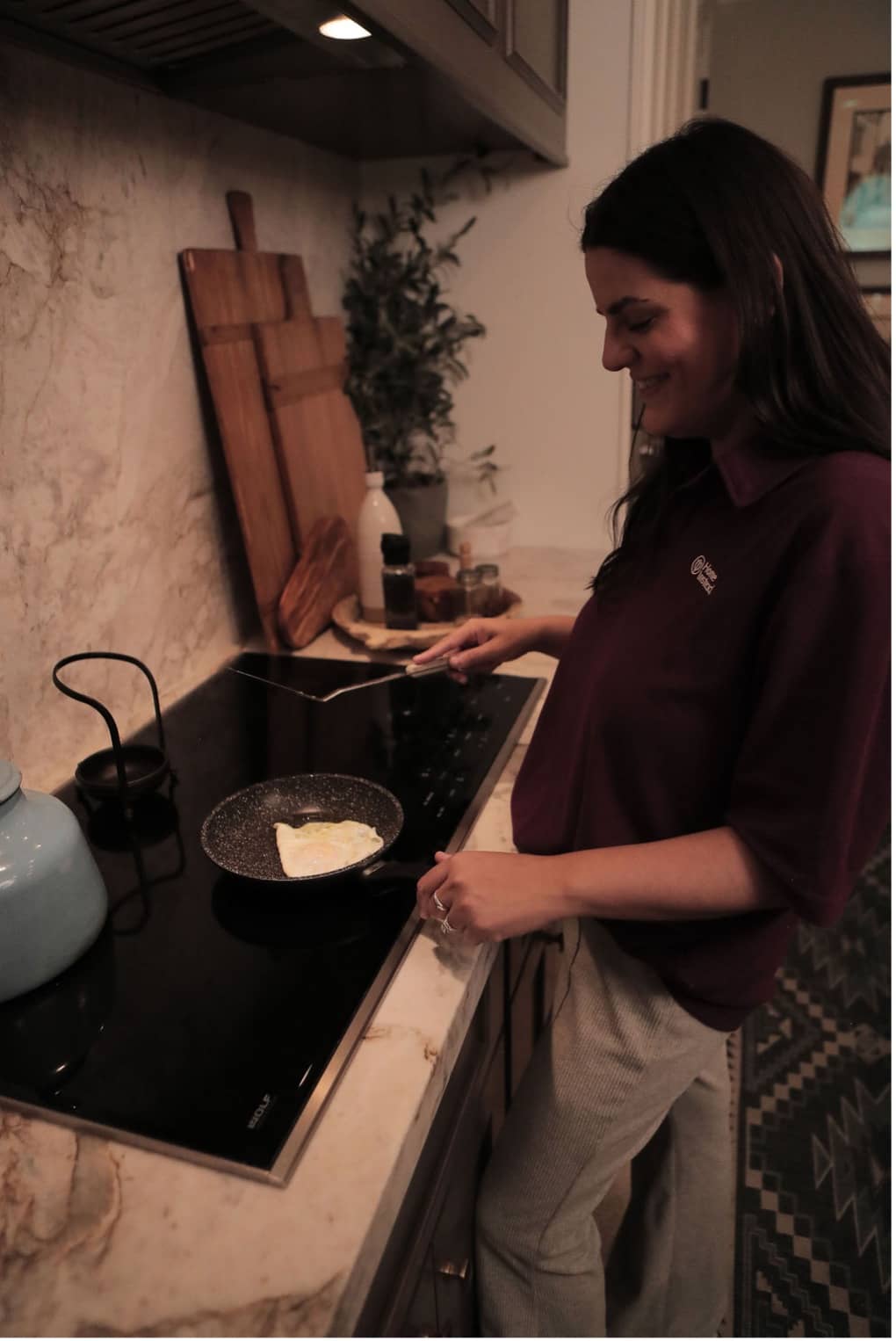
Our biggest piece of advice is to make sure your encouragement does not come off as demeaning. Gentle reminders are always accepted, but refrain from coming off as pushy. A cheerful attitude works way better in the long run, even if it feels difficult at first. Our best (and easiest) tip of all- make sure you’re eating with your loved one!
Mealtime should become one of the best parts of the day, so sit down, relax, and be present in the company of your whole family. Once they see you enjoying your meal, they will inadvertently start to do the same.
I need support for tackling an eating routine, where do I start?
Caring for a loved one with Alzheimer's can be emotionally and physically demanding, but you don't have to face it alone. Home Instead is deeply committed to our clients' well-being, we're here to help you navigate the challenges of mealtime difficulties. Our dedicated caregivers and support team are here to help provide the assistance your entire family deserves. Together, we can enhance their quality of life and ensure they receive the best care possible. Let's tackle this challenge as a team and make mealtimes enjoyable for your loved one once again.
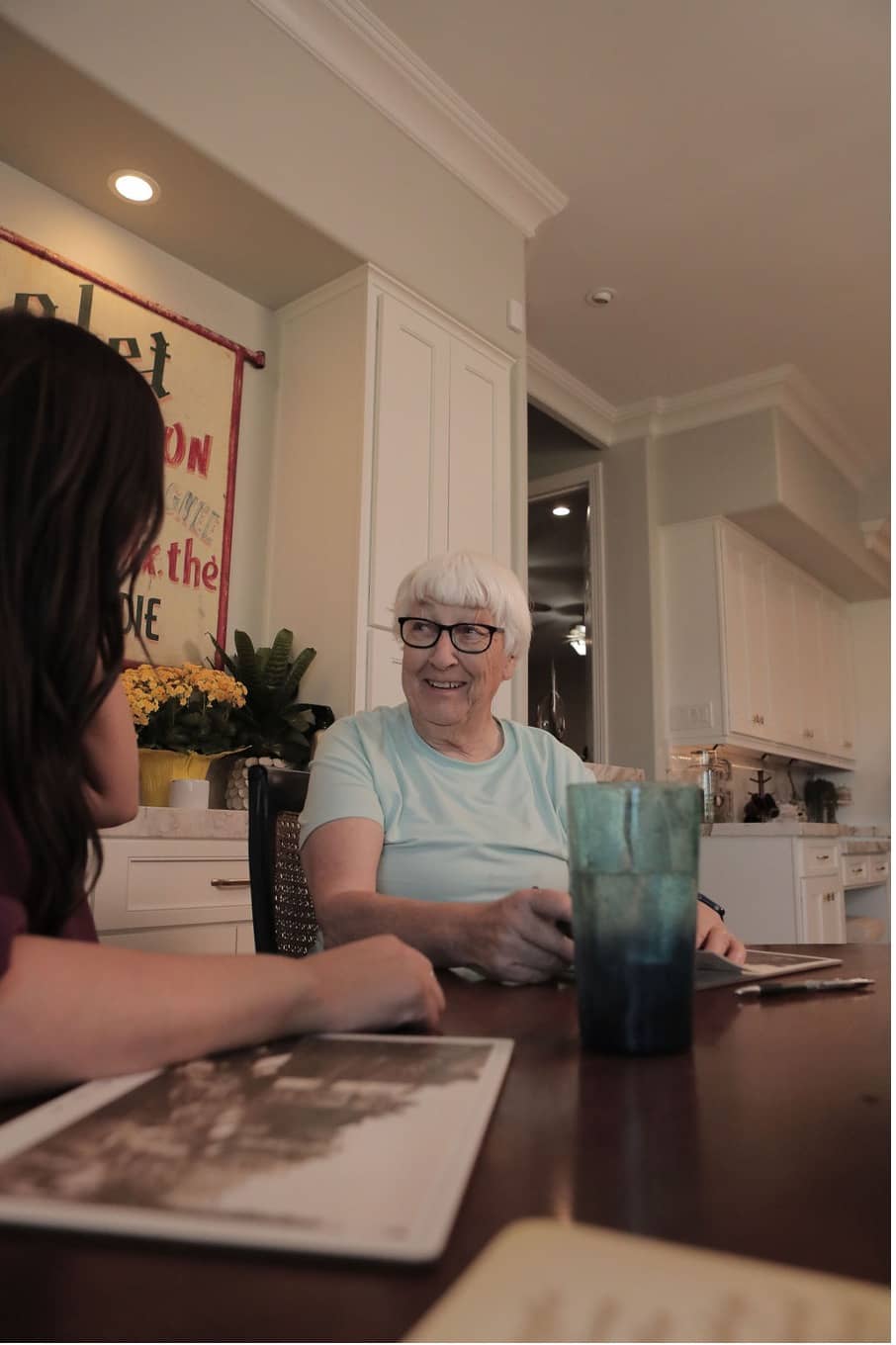
If you have any questions or need guidance on caring for your loved one with Alzheimer's, please reach out to us. We're here to support you every step of the way.


